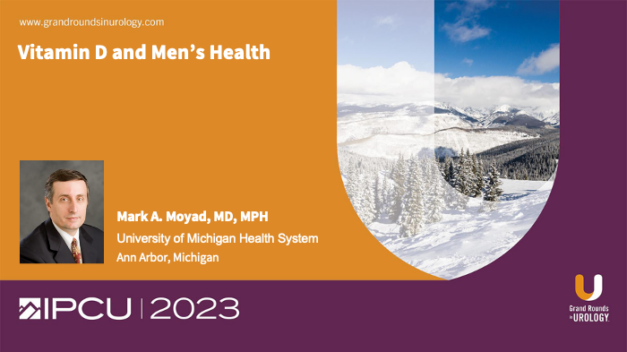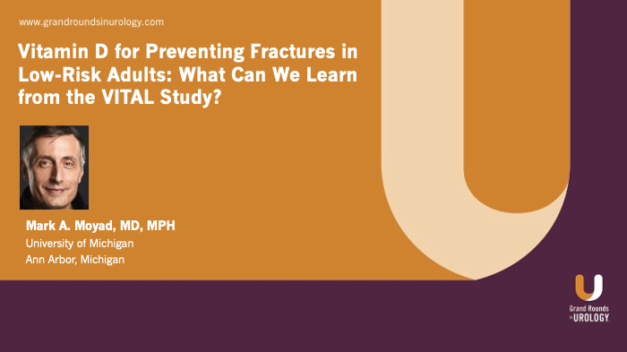Vitamin D and Men’s Health
Mark A. Moyad, MD, MPH, the Jenkins/Pokempner Director of Preventive/Complementary and Alternative Medicine (CAM) in the Department of Urology at the University of Michigan Medical Center in Ann Arbor, Michigan, presents on the current status of vitamin D in men’s health. While randomized trials have shown limited benefits in major endpoints, such as preventing cardiovascular disease and cancer, there is a significant signal indicating the potential of vitamin D in autoimmune disease prevention. He discusses exciting findings from the VITAL trial suggesting that a moderate dose of vitamin D may reduce the risk of autoimmune disease. Additionally, individuals with a healthy BMI and those at high risk for bone loss could potentially benefit more from vitamin D supplementation. Dr. Moyad emphasizes the importance of understanding the limitations of vitamin D blood tests and suggests that targeted screening is recommended for specific groups. Overall, he says, fortification and supplementation of vitamin D remain safe and cost-effective strategies for improving men’s health.
Read More




